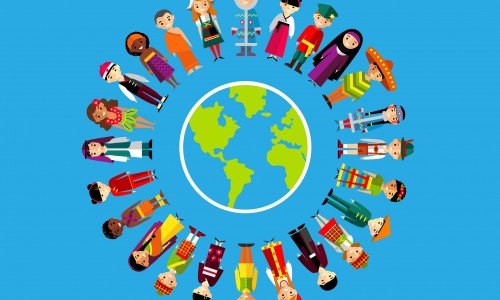
The Spiritual Consequences of Jealousy
Who has never felt jealous of someone or something? We often see this feeling as something that’s natural, and even as something that “adds spice” to a relationship. However, jealousy is not always as harmless as it seems and its consequences are not so simple. It may even attract negative energy and ignorant spirits who are prisoners of this type of feeling and end up distancing us from our happiness.
What can we do to deal with jealousy and not let this feeling ruin our relationships? First it’s important to emphasize that there is a huge difference between caring for people we love and harboring a feeling of ownership and dependence on them. According to specialists, people who feel jealous normally feel threatened by the possibility of loss. Despondency or even despair may take over us just for one moment and undermine our relationships, since jealousy often represents insecurity and a lack of trust in the other person.
The feeling of possession
How many times does a simple supposition become the reason for a heated argument? Extreme jealousy makes us lose our balance and unleashes a series of attitudes that will harm us and those around us.
We should not imagine that people become our property just because they established ties with us. People are not things we can possess. With regard to the feeling of possession, which should not be cultivated in relationships, the President-Preacher of the Religion of God, of the Christ, and of the Holy Spirit1, José de Paiva Netto, points out in his book Reflexões da Alma [Reflections of the Soul], page 153:
“When you understand the meaning of renunciation, you learn to love. It is at this moment that happiness truly takes hold of your heart. A lesson from the Bhagavad-Gita: ‘He knows peace who has forgotten desire.’”
This posture applies perfectly to our relationships, teaching us to live with more inner balance.

How to have a healthy and long-lasting relationship?
Respect, dialogue, and love are the foundation of a healthy and long-lasting relationship. Also in the same book, on page 78, Paiva Netto makes another important contribution to this subject:
“Farsighted is he who raises the dam before the flood arrives. Paranoid is he who does this for no reason.”
In this case, being prudent does not mean calling the person every 5 minutes and asking them where they are, who they are with, what they are doing, and where they are going. It’s wise to build a relationship based on mutual trust, constant dialogue, and respect for each other’s choices.
Paiva Netto also states that, “God leaves us morally free, but not immorally free.” Each one of us is responsible for what we do to others. It’s for our actions that we shall be held accountable; never for what they say about us. So there’s no reason to despair.
To overcome fear, anxiety, uncertainty, mistrust, anger, and a lack of control and to balance the emotions we can count on the support of medicine and professional help. Try also to occupy your time with good thoughts and attitudes, which will have a positive impact on your life and on the lives of so many other people facing challenges.
Another powerful instrument that must never be forgotten is prayer, which is not understood as a refuge of cowards or the idle, as the Religion of the Third Millennium teaches us, but as an opportunity to find peace for the Soul in order to understand circumstances and act in a more correct way. Let’s allow ourselves to pray.
Send your doubts and comments on this and other topics to the Religion of God, of the Christ, and of the Holy Spirit. Let the Ecumenical Spirituality be part of your life! If this content does you good, share it! It may touch the heart of many other people too.
_____________
1 Religion of God, of the Christ, and of the Holy Spirit — also called the Religion of the Third Millennium, and the Religion of Universal Love. This is the Ecumenical Religion of Brazil and abroad.



